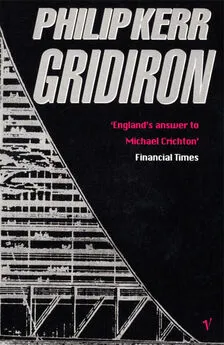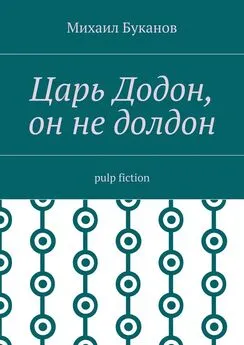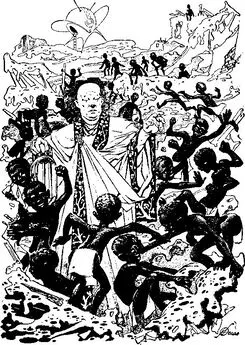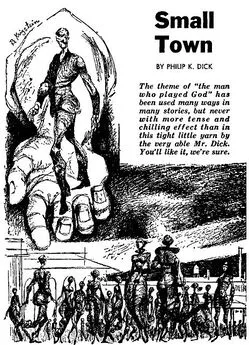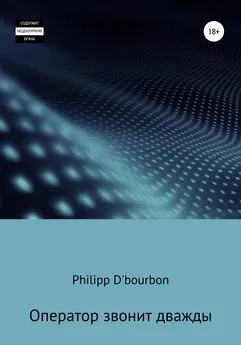Philip Dick - Meddler
- Название:Meddler
- Автор:
- Жанр:
- Издательство:неизвестно
- Год:неизвестен
- ISBN:нет данных
- Рейтинг:
- Избранное:Добавить в избранное
-
Отзывы:
-
Ваша оценка:
Philip Dick - Meddler краткое содержание
Meddler - читать онлайн бесплатно полную версию (весь текст целиком)
Интервал:
Закладка:
MEDDLER
They entered the great chamber. At the far end, technicians hovered around an immense illuminated board, following a complex pattern of lights that shifted rapidly, flashing through seemingly endless combinations. At long tables machines whirred — computers, human-operated and robot. Wall-charts covered every inch of vertical space. Hasten gazed around him in amazement.
Wood laughed. “Come over here and I’ll really show you something. You recognize this , don’t you?” He pointed to a hulking machine surrounded by silent men and women in white lab robes.
“I recognize it,” Hasten said slowly. “It’s something like our own Dip, but perhaps twenty times larger. What do you haul up? And when do you haul?” He fingered the surface-plate of the Dip, then squatted down, peering into the maw. The maw was locked shut; the Dip was in operation. “You know, if we had any idea this existed, Histo-Research would have —” “You know now.” Wood bent down beside him. “Listen, Hasten, you’re the first man from outside the Department ever to get into this room. You saw the guards. No one gets in here unauthorized; the guards have orders to kill anyone trying to enter illegally.”
“To hide this? A machine? You’d shoot to —”
They stood, Wood facing him, his jaw hard. “ Your Dip digs back into antiquity. Rome. Greece. Dust and old volumes.” Wood touched the big Dip beside them. “This Dip is different. We guard it with our lives, and anyone else’s lives; do you know why?”
Hasten stared at it.
“This Dip is set, not for antiquity, but — for the future.” Wood looked directly into Hasten’s face. “Do you understand? The future.”
“You’re dredging the future? But you can’t! It’s forbidden by law; you know that!” Hasten drew back. “If the Executive Council knew this they’d break this building apart. You know the dangers. Berkowsky himself demonstrated them in his original thesis.”
Hasten paced angrily. “I can’t understand you, using a future- oriented Dip. When you pull material from the future you automatically introduce new factors into the present; the future is altered —• you start a never-ending shift. The more you dip the more new factors are brought in. You create unstable conditions for centuries to come. That’s why the law was passed.” Wood nodded. “I know.”
“And you still keep dipping?” Hasten gestured at the machine and the technicians. “Stop, for God’s sake! Stop before you introduce some lethal element that can’t be erased. Why do you keep —”
Wood sagged suddenly. “All right, Hasten, don’t lecture us. It’s too late; it’s already happened. A lethal factor was introduced in our first experiments. We thought we knew what we were doing . . .’’He looked up. “And that’s why you were brought here. Sit down — you’re going to hear all about it.”
They faced each other across the desk. Wood folded his hands. “I’m going to put it straight on the line. You are considered an expert, the expert at Histo-Research. You know more about using a Time Dip than anyone alive; that’s why you’ve been shown our work, our illegal work.”
“And you’ve already got into trouble?”
“Plenty of trouble, and every attempt to meddle further makes it that much worse. Unless we do something, we’ll be the most culpable organization in history.”
“Please start at the beginning,” Hasten said.
“The Dip was authorized by the Political Science Council; they wanted to know the results of some of their decisions. At first we objected, giving Berkowsky’s theory; but the idea is hypnotic, you know. We gave in, and the Dip was built — secretly, of course.
“We made our first dredge about one year hence. To protect ourselves against Berkowsky’s factor we tried a subterfuge; we actually brought nothing back. This Dip is geared to pick up nothing. No object is scooped; it merely photographs from a high altitude. The film comes back to us and we make enlargements and try to gestalt the conditions.
“Results were all right, at first. No more wars, cities growing, much better looking. Blow-ups of street scenes show many people, well-content, apparently. Pace a little slower.
“Then we went ahead fifty years. Even better: cities on the decrease. People not so dependent on machines. More grass, parks. Same general conditions, peace, happiness, much leisure. Less frenetic waste, hurry.
“We went on, skipping ahead. Of course, with such an indirect viewing method we couldn’t be certain of anything, but it all looked fine. We relayed our information to the Council and they went ahead with their planning. And then it happened.” “What, exactly?” Hasten said, leaning forward.
“We decided to revisit a period we had already photographed, about a hundred years hence. We sent out the Dip, got it back with a full reel. The men developed it and we watched the run.” Wood paused.
“And?”
“And it wasn’t the same. It was different. Everything was changed. War — war and destruction everywhere.” Wood shuddered. “We were appalled; we sent the Dip back at once to make absolutely certain.” “And what did you find this time?”
Wood’s fists clenched. “Changed again, and for worse! Ruins, vast ruins. People poking around. Ruin and death everywhere. Slag. The end of war, the last phase.”
“I see,” Hasten said, nodding. “That’s not the worst! We conveyed the news to the Council. It ceased all activity and went into a two-week conference; it canceled all ordinances and withdrew every plan formed on the basis of our reports. It was a month before the Council got in touch with us again. The members wanted us to try once more, take one more Dip to the same period. We said no, but they insisted. It could be no worse, they argued.
“So we sent the Dip out again. It came back and we ran the film. Hasten, there are things worse than war. You wouldn’t believe what we saw. There was no human life; none at all, not a single human being.” “Everything was destroyed?” “No! No destruction, cities big and stately, roads, buildings, lakes, fields. But no human life; the cities empty, functioning mechanically, every machine and wire untouched. But no living people.”
“What was it?”
“We sent the Dip on ahead, at fifty year leaps. Nothing. Nothing each time. Cities, roads, buildings, but no human life. Everyone dead. Plague, radiation, or what, we don’t know. But something killed them. Where did it come from? We don’t know. It wasn’t there at first, not in our original dips.
“Somehow, we introduced it, the lethal factor. We brought it, with our meddling. It wasn’t there when we started; it was done by us, Hasten.” Wood stared at him, his face a white mask. “We brought it and now we’ve got to find what it is and get rid of it.”
“Flow are you going to do that?” “We’ve built a Time Car, capable of carrying one human observer into the future. We’re sending a man there to see what it is. Photographs don’t tell us enough; we have to know more! When did it first appear? How? What were the first signs? What is it? Once we know, maybe we can eliminate it, the factor, trace it down and remove it. Someone must go into the future and find out what it was we began. It’s the only way.”
Wood stood up, and Hasten rose, too.
“You’re that person,” Wood said. “You’re going, the most competent person available. The Time Car is outside, in an open square, carefully guarded.” Wood gave a signal. Two soldiers came toward the desk. “Sir?”
“Come with us,” Wood said. “We’re going outside to the square; make sure no one follows after us.” He turned to Hasten. “Ready?” Hasten hesitated. “Wait a minute. I’ll have to go over your work, study what’s been done. Examine the Time Car itself. I can’t —”
The two soldiers moved closer, looking to Wood. Wood put his hand on Hasten’s shoulder. “I’m sorry,” he said, “we have no time to waste; come along with me.”
All around him blackness moved, swirling toward him and then receding. He sat down on the stool before the bank of controls, wiping the perspiration from his face. He was on his way, for better or worse. Briefly, Wood had outlined the operation of the Time Car. A few moments of instruction, the controls set for him, and then the metal door slammed behind him.

Hasten looked around him. It was cold in the sphere; the air was thin and chilly. He watched the moving dials for awhile, but presently the cold began to make him uncomfortable. He went over to the equip- ment-locker and slid the door back. A jacket, a heavy jacket, and a flash gun. He held the gun for a minute, studying it. And tools, all kinds of tools and equipment. He was just putting the gun away when the dull chugging under him suddenly ceased. For one terrible second he was floating, drifting aimlessly, then the feeling was gone.
Sunlight flowed through the window, spreading out over the floor. He snapped the artificial lights off and went to the window to see. Wood had set the controls for a hundred years hence; bracing himself, he looked out.
A meadow, flowers and grass, rolling off into the distance. Blue sky and wandering clouds. Some animals grazed a long way off, standing together in the shade of a tree. He went to the door and unlocked it, stepping out. Warm sunlight struck him, and he felt better at once. Now he could see the animals were cows.
He stood for a long time at the door, his hands on his hips. Could the plague have been bacterial P Air- carried? If it were a plague. He reached up, feeling the protective helmet resting on his shoulders. Better to keep it on.
He went back and got the gun from the locker. Then he returned to the lip of the sphere, checked the door-lock to be certain it would remain closed during his absence. Only then, Hasten stepped down onto the grass of the meadow. He closed the door and looked around him. Presently he began to walk quickly away from the sphere, toward the top of a long hill that stretched out half a mile away. As he strode along, he examined the click-band on his wrist which would guide him back to the metal sphere, the Time Car, if he could not find the way himself.
He came to the cows, passing by their tree. The cows got up and moved away from him. He noticed something that gave him a sudden chill; their udders were small and wrinkled. Not herd cows.
When he reached the top of the hill he stopped, lifting his glasses from his waist. The earth fell away, mile after mile of it, dry green fields without pattern or design, rolling like waves as far as the eye could see. Nothing else? He turned, sweeping the horizon.
He stiffened, adjusting the sight. Far off to the left, at the very limit of vision, the vague perpendiculars of a city rose up. He lowered the glasses and hitched up his heavy boots. Then he walked down the other side of the hill, taking big steps; he had a long way to go.
Hasten had not walked more than half an hour when he saw butterflies.
They rose up suddenly a few yards in front of him, dancing and fluttering in the sunlight. He stopped to rest, watching them. They were all colors, red and blue, with splashes of yellow and green. They were the largest butterflies he had ever seen. Perhaps they had come from some zoo, escaped and bred wild after man left the scene. The butterflies rose higher and higher in the air. They took no notice of him but struck out toward the distant spires of the city; in a moment they were gone.
Читать дальшеИнтервал:
Закладка:


